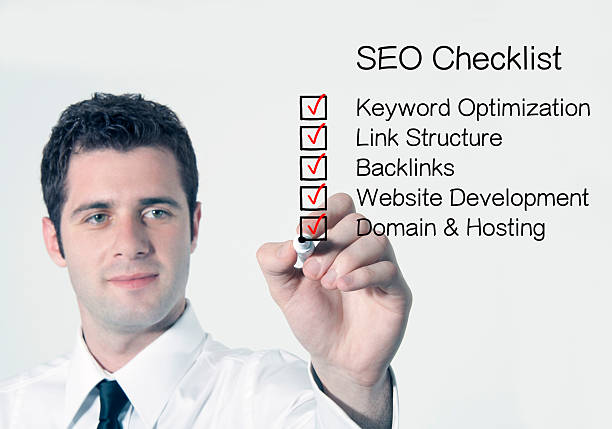Local SEO is the foundation for any business looking to attract nearby customers. For marketing agencies, mastering Local SEO can open doors to help clients grow effectively. This guide will show you how to succeed in the Local SEO space with strategies that deliver real results.
What Is Local SEO?
Local SEO is a strategy that helps businesses appear in search engine results when people search for services or products nearby. Think about when you search for a coffee shop or a plumber near you. Those businesses that show up at the top of the map or search list are benefiting from strong Local SEO.
For marketing agencies, this can mean making sure clients rank higher in local searches to capture more leads. It is all about focusing on keywords, location-based strategies, and understanding search trends in specific areas.
Why Local SEO Matters for Marketing Agencies
Marketing agencies need to understand Local SEO because it is not just a “nice-to-have.” It is essential for businesses that depend on local customers, such as restaurants, dental offices, and service providers.
Here are a few reasons why Local SEO matters:
- Helps Clients Stand Out: Increases the visibility of a business in its community, ensuring it stays ahead of competitors.
- Drives More Foot Traffic: Businesses with strong local rankings are more likely to attract walk-in customers.
- Builds Trust: Showing up in the local search results can boost a business’s credibility.
When done well, Local SEO can transform the way businesses attract their audience, giving marketing agencies an edge over competitors.
Key Elements of Local SEO
To help clients excel, marketing agencies must focus on several critical areas. Each plays a role in boosting a business’s visibility in search results.
1. Google My Business (GMB) Optimization
Google My Business is a free tool from Google that helps businesses manage their online presence. A fully optimized GMB profile is a must for Local SEO.
- Ensure all details like address, phone number, and hours of operation are accurate.
- Use high-quality images that showcase the business.
- Add keywords naturally to the business description.
2. NAP Consistency
NAP stands for Name, Address, and Phone Number. Consistency is key across all online platforms, such as directories and websites.
- Make sure the information matches on every platform.
- Use the same format for addresses and contact details everywhere.

3. Local Keywords
Including local keywords in your content is crucial for showing up in searches. Use tools to identify what people are searching for in your client’s area.
- Focus on phrases like “best pizza in Chicago” or “affordable dentist near me.”
- Naturally weave these phrases into content, meta descriptions, and headers.
How To Build High-Quality Local Links
Local link building is one of the best ways to improve Local SEO rankings. A strong network of local backlinks can signal to search engines that your client’s business is trustworthy.
4. Partner With Local Organizations
Suggest partnerships with community organizations or sponsor local events. These collaborations often come with backlinks from trusted local websites.
5. List on Local Directories
Directories like Yelp, TripAdvisor, and industry-specific sites are excellent for boosting a business’s local presence.
- Add the business to relevant directories.
- Keep all details consistent across listings.
6. Encourage Reviews
Positive reviews from customers are a cornerstone of Local SEO. They not only improve rankings but also build trust.
- Ask happy customers to leave reviews on Google, Yelp, or Facebook.
- Respond to reviews, both positive and negative, to show the business cares.

The Role of Mobile Search in Local SEO
Mobile devices have changed the way people search. Studies show that most local searches happen on phones. Marketing agencies must prioritize this trend when building Local SEO strategies.
7. Focus on Mobile-Friendly Websites
A business’s website should load quickly and look great on all devices. Search engines favor mobile-friendly websites, making them essential for Local SEO success.
8. Target “Near Me” Searches
“Near me” searches are growing rapidly. People look for businesses nearby while on the go, and these searches often lead to immediate action.
- Optimize for “near me” keywords in content and headers.
- Include detailed business locations and service areas.
Creating Location-Specific Content: Local SEO
Content tailored to a specific area is a powerful tool. By targeting local interests, businesses can attract more relevant traffic.
9. Write Local Blog Posts
Publish content about local events, news, or guides that tie into the client’s business. For example, a bakery could write about “Top Pastries to Try in [City].”
10. Highlight Local Testimonials
Use testimonials from customers in the area to create trust and authenticity. Add location details where appropriate, like “Sarah from Dallas loves our products!”
Tracking and Measuring Local SEO Success
How can marketing agencies know if their Local SEO efforts are paying off? Tracking performance is critical.
11. Monitor Rankings
Use tools to check where the business ranks for local keywords. Keep an eye on progress over time.
12. Analyze Traffic and Engagement

Google Analytics and other tools can show how many visitors are coming from local searches. Look for patterns in customer behavior.
13. Keep an Eye on Reviews
Reviews can provide insights into customer satisfaction and areas for improvement. Responding to reviews also helps maintain the business’s reputation.
Common Local SEO Challenges (and How To Solve Them)
Even the best Local SEO strategies can face hurdles. Here are some challenges marketing agencies may encounter and how to address them.
14. Inconsistent Listings
When NAP information does not match, search engines may penalize rankings. Solve this by auditing all listings and correcting discrepancies.
15. Lack of Customer Reviews
Some businesses struggle to get reviews. Agencies can create a simple system to encourage clients to ask for feedback from their customers.
How To Stay Ahead With Local SEO
Local SEO is always evolving. Marketing agencies need to stay updated on trends and changes in algorithms.
16. Follow Search Engine Updates
Search engines often update how they rank local businesses. Stay informed to ensure strategies remain effective.
17. Experiment With New Tactics
Test out new approaches, like voice search optimization or video marketing, to gain an edge in local search rankings.
Conclusion: Local SEO
Local SEO is a vital tool for marketing agencies looking to help their clients grow. By focusing on Google My Business optimization, local keywords, high-quality backlinks, and consistent NAP information, agencies can position businesses to thrive. Tracking progress and adapting to changes ensures that clients continue to see success in their local markets.








[…] is especially true in industries like technology, marketing, health, and finance, where staying up-to-date with the latest trends is crucial. So, if you’re […]